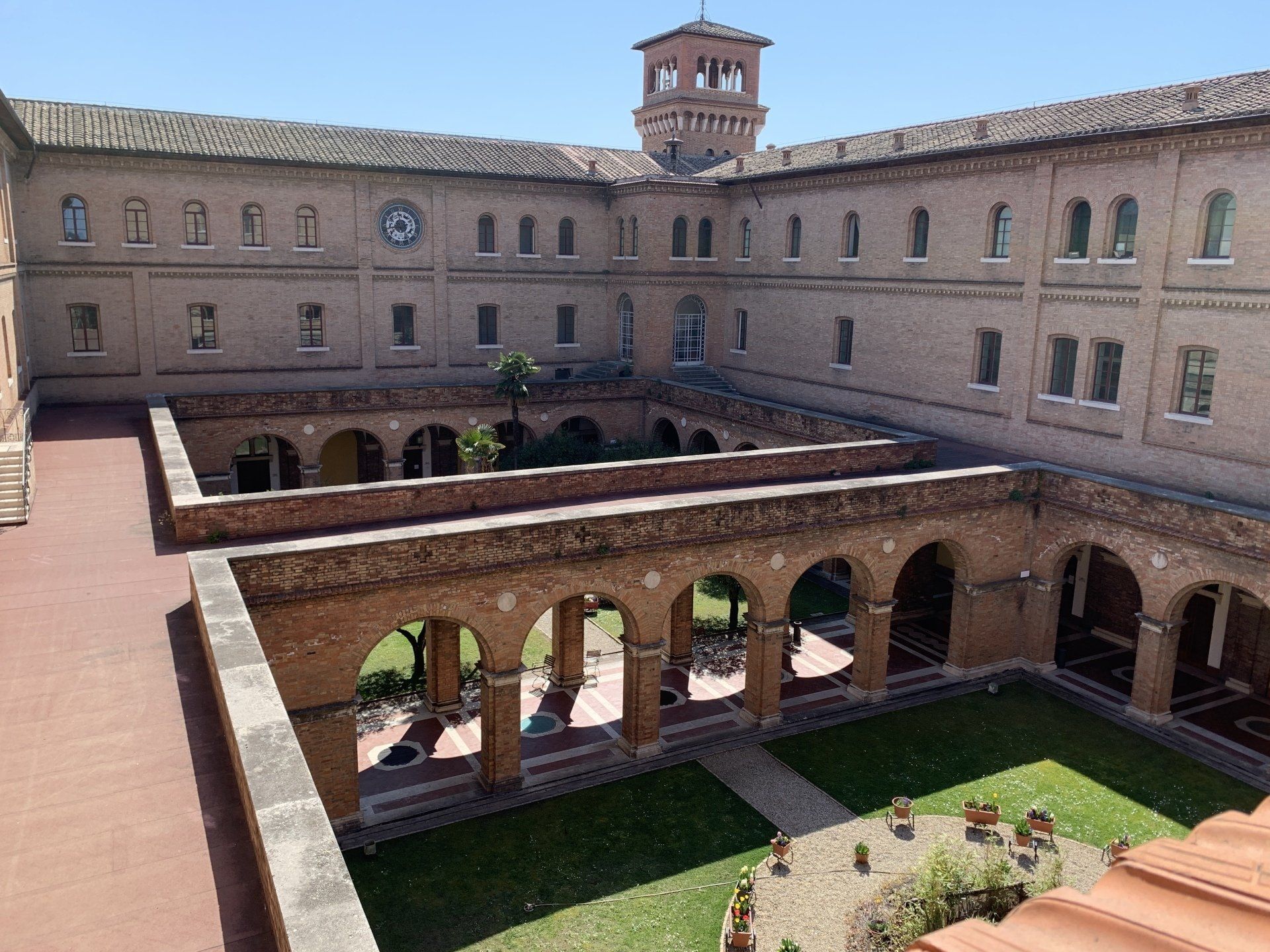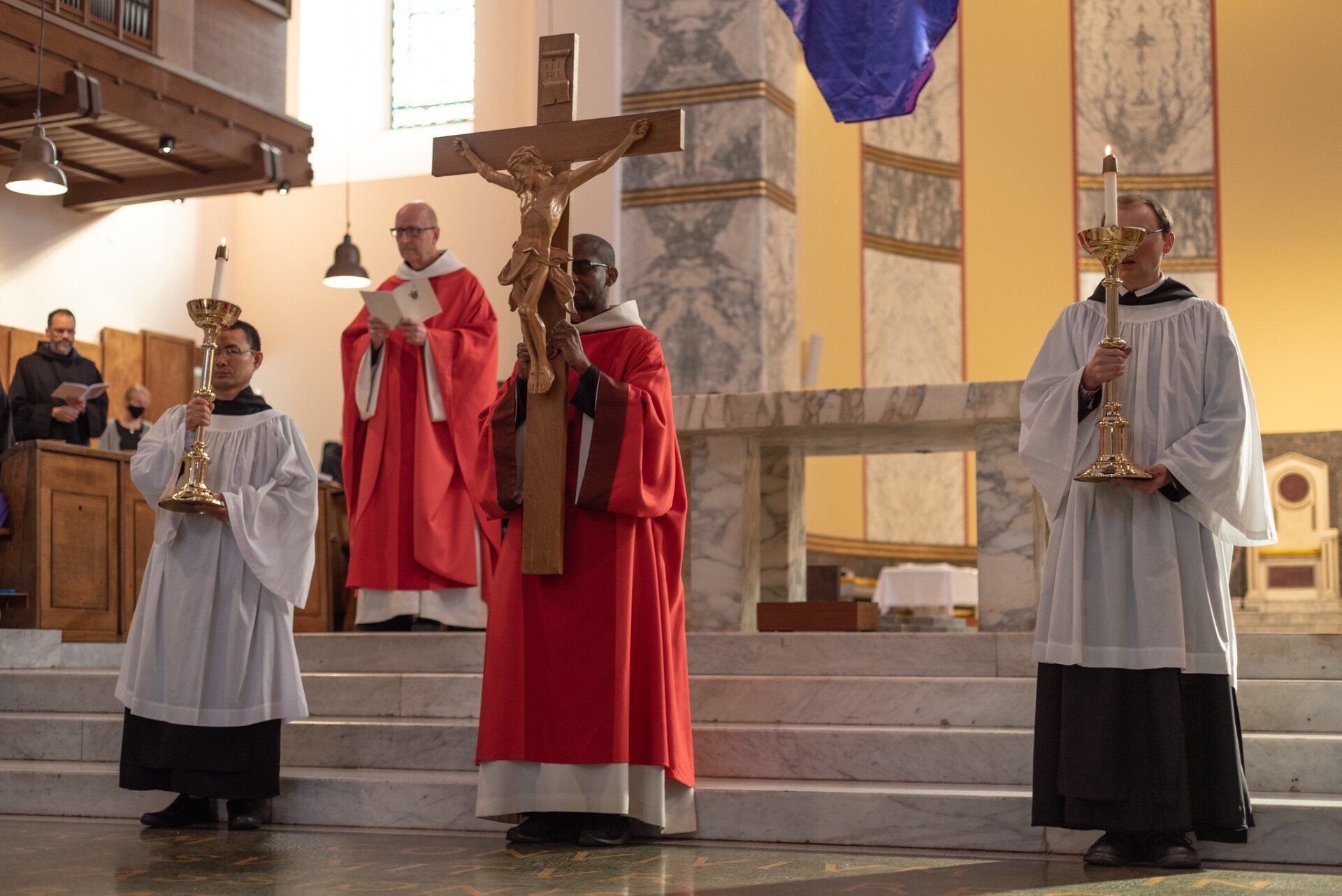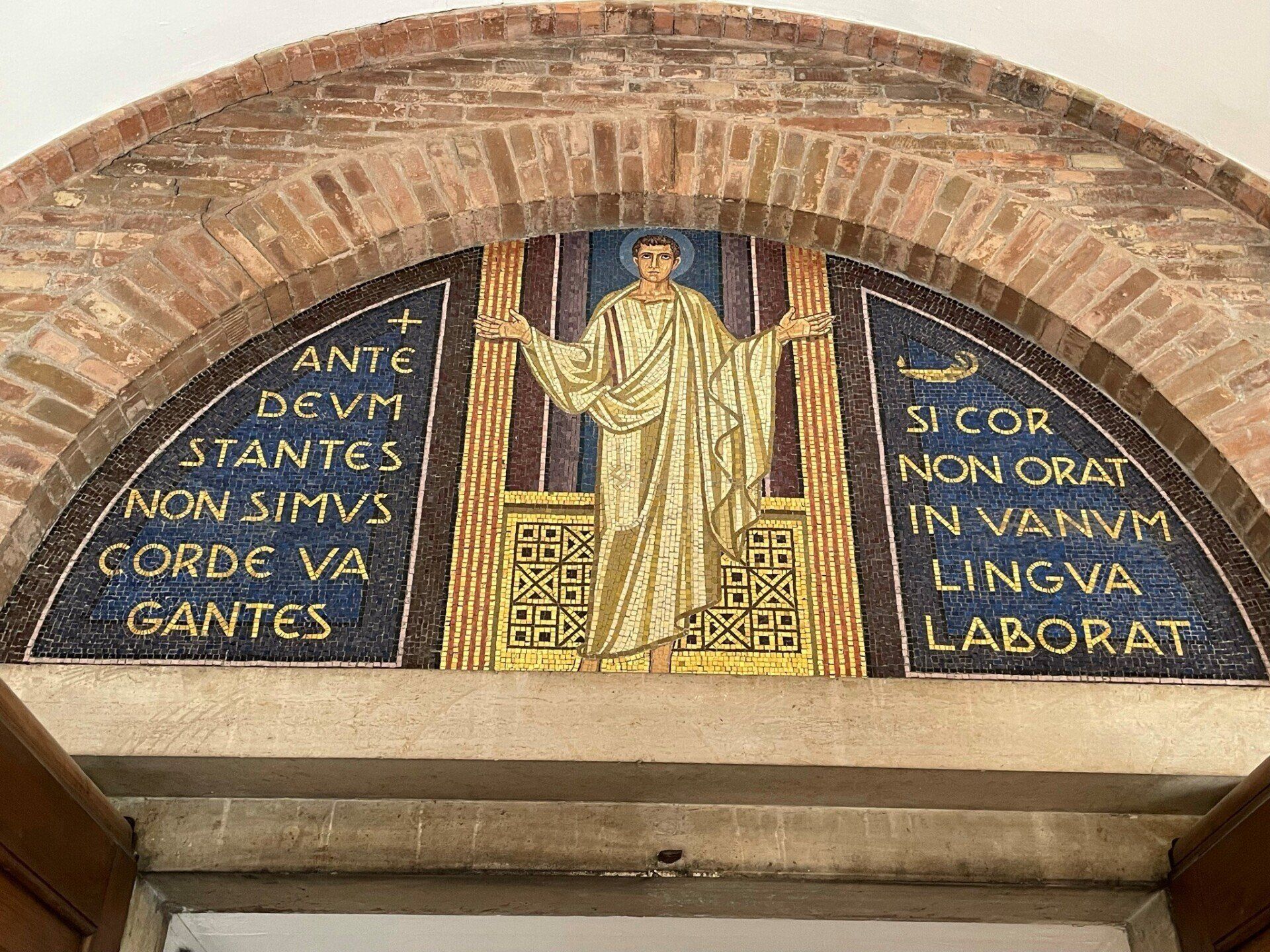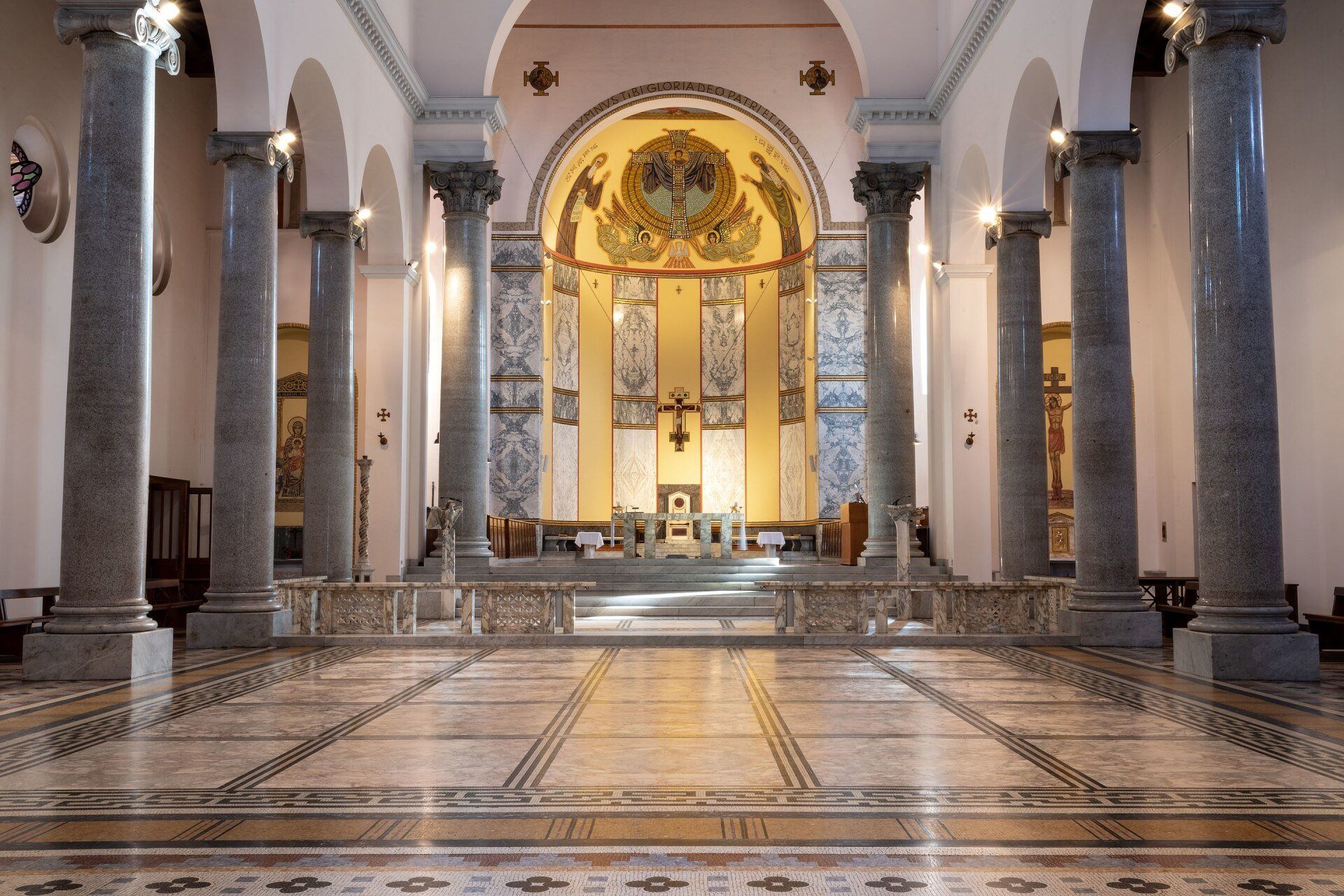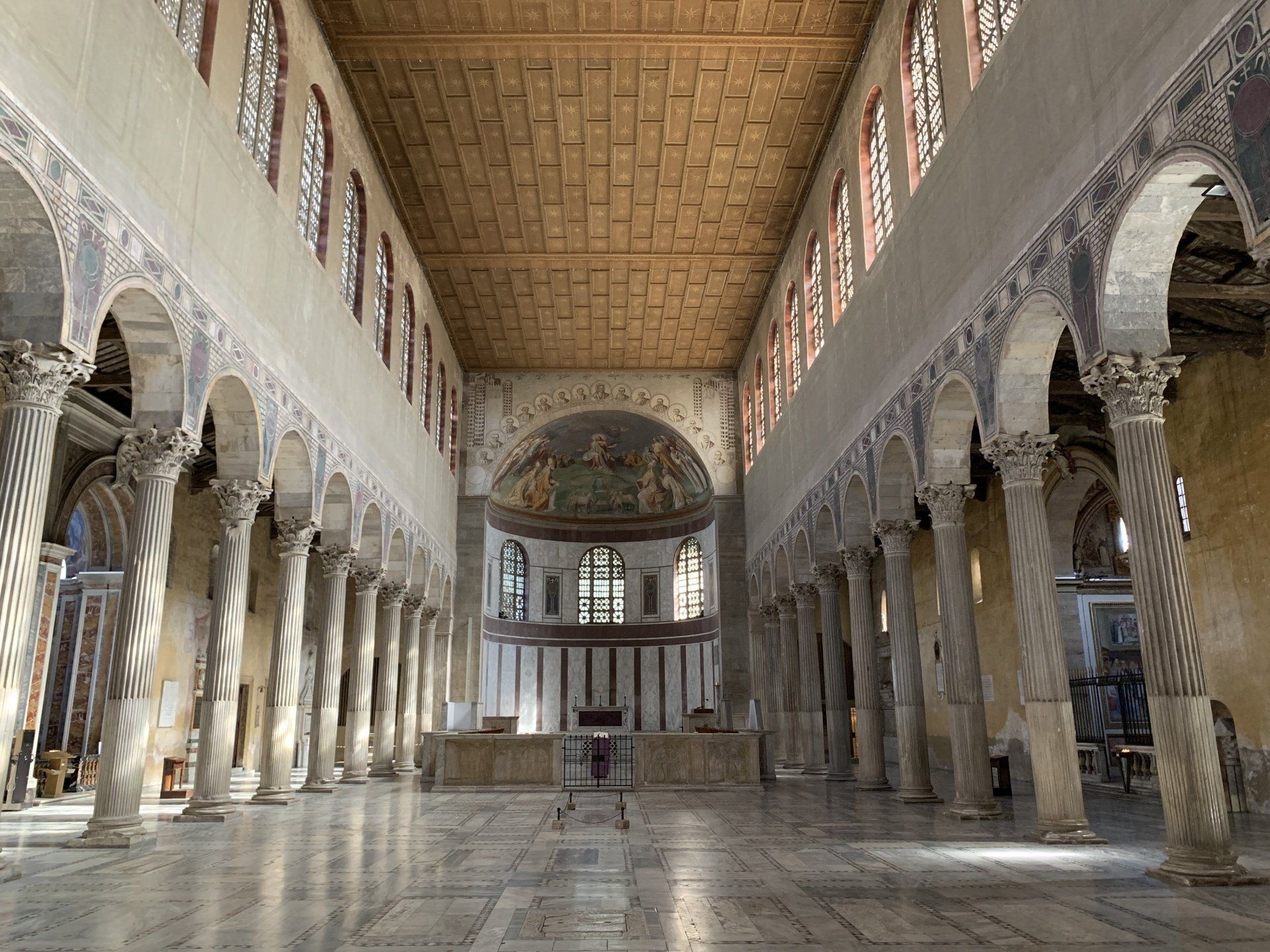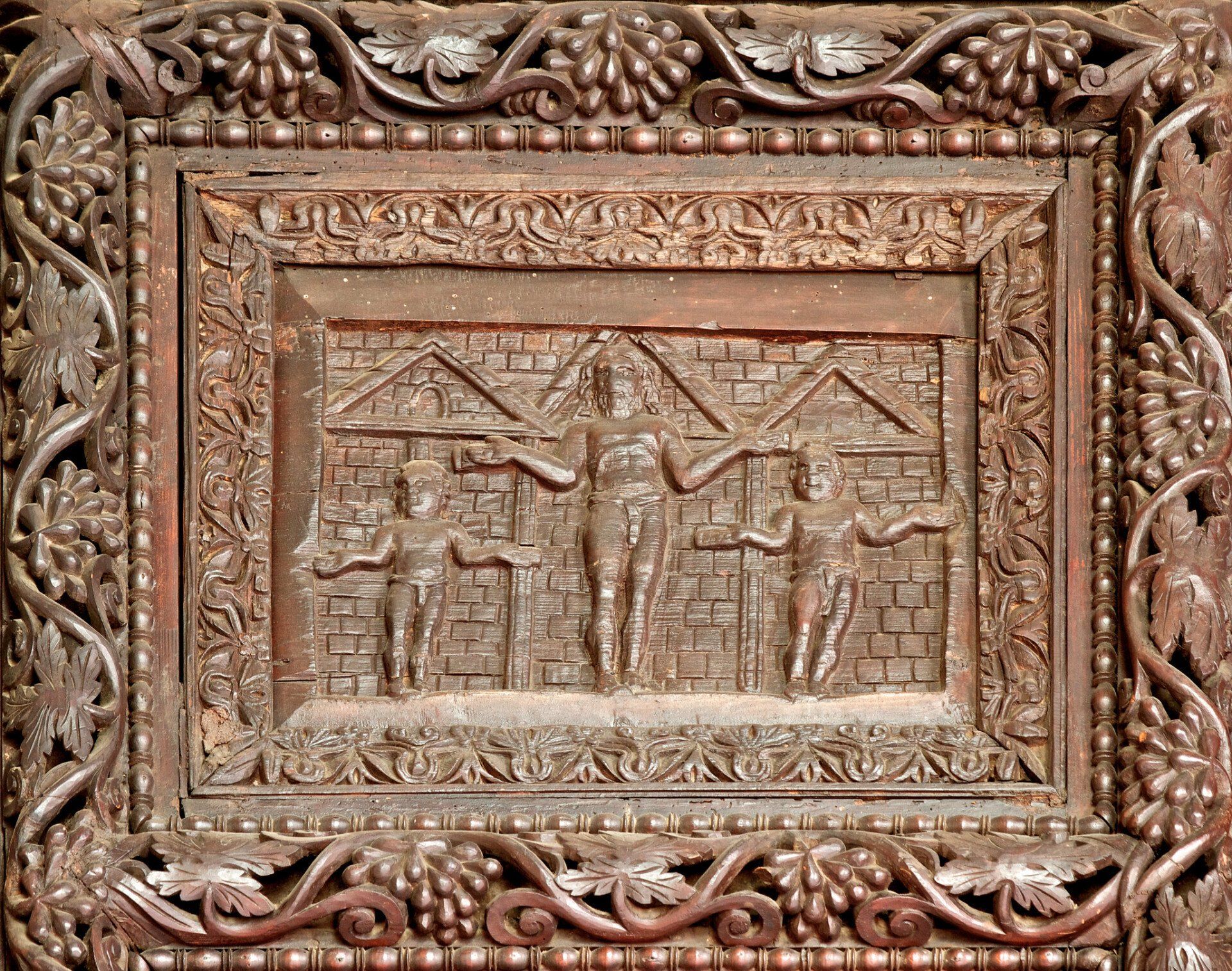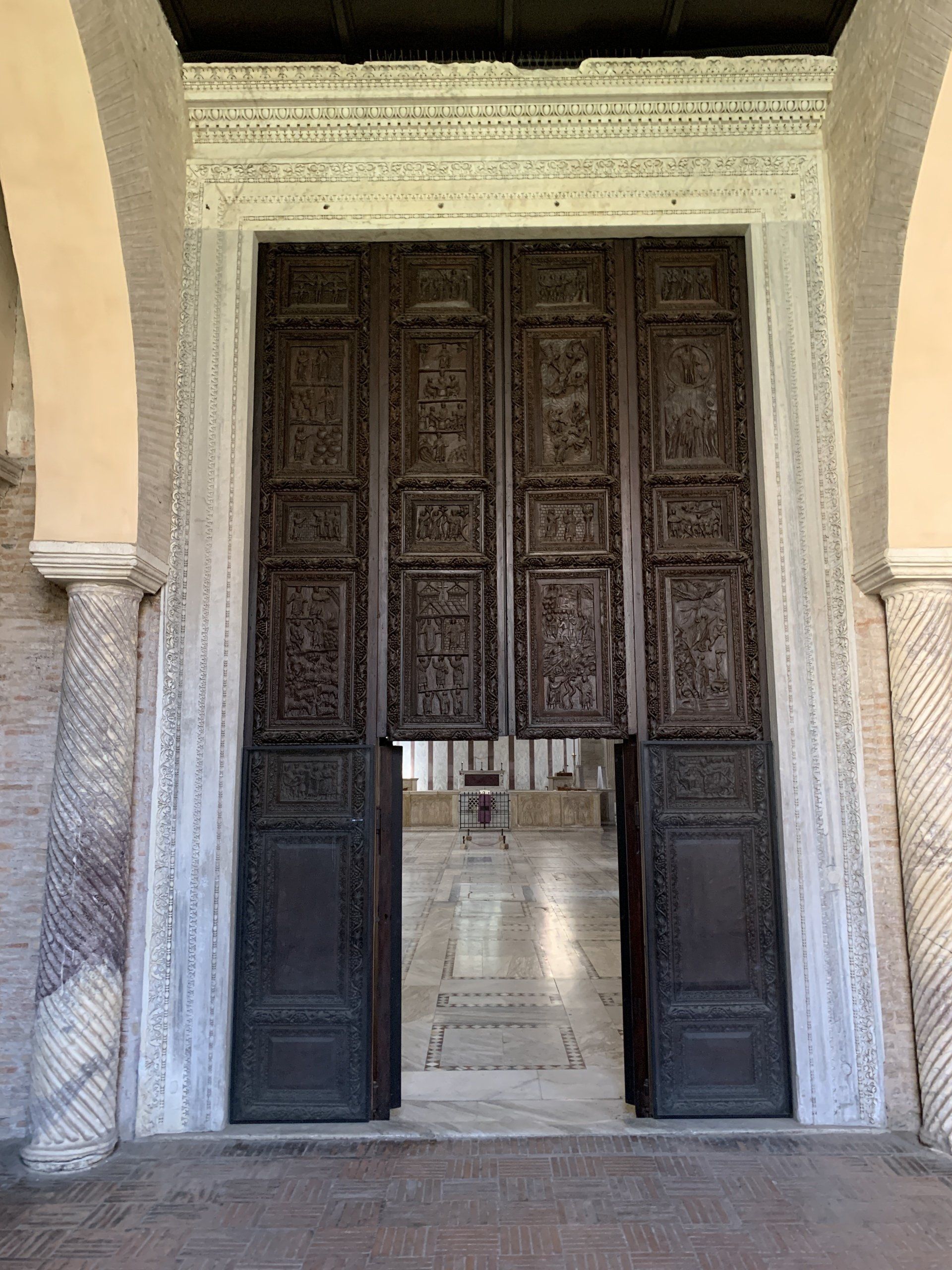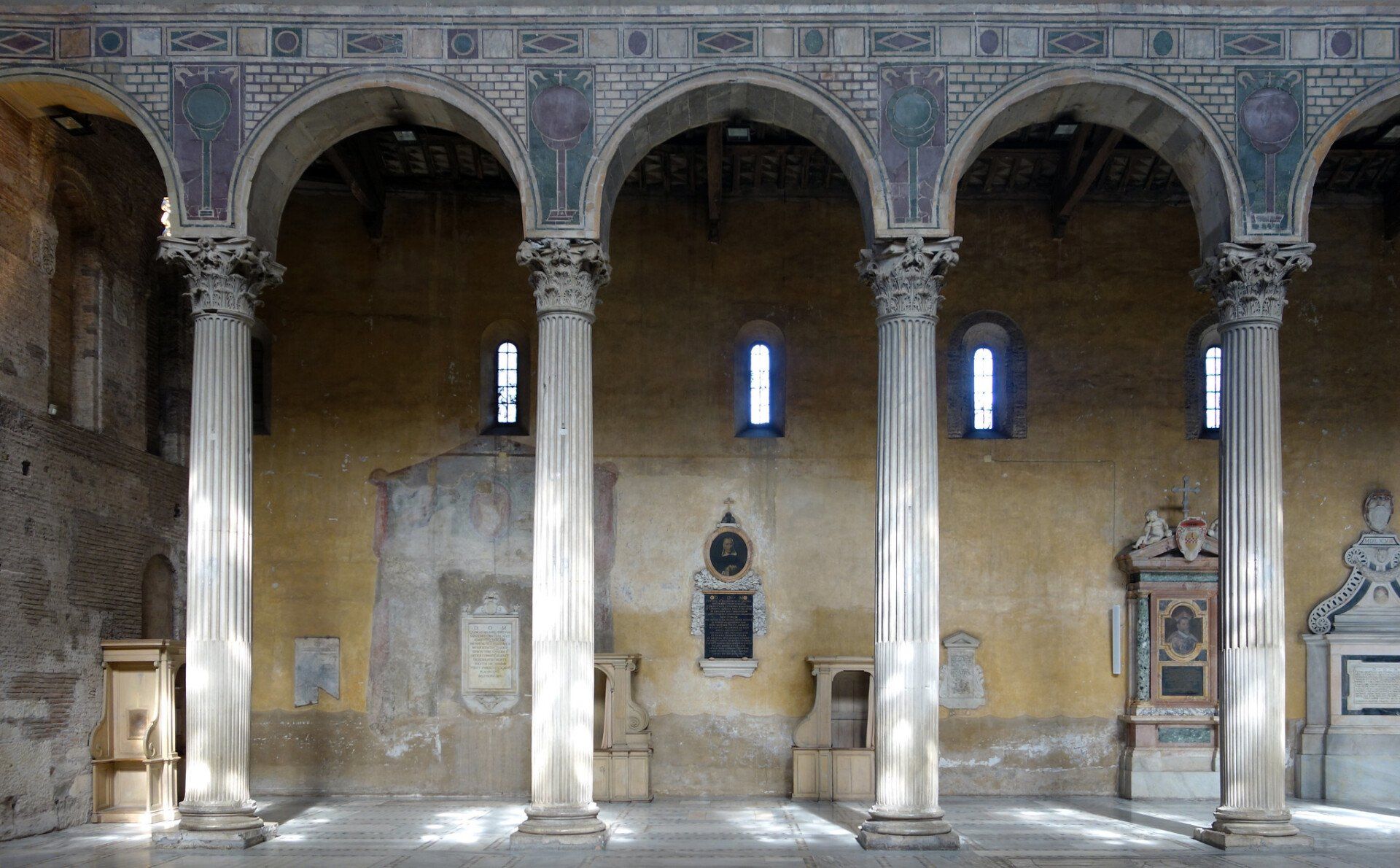From the Preface to Book vii of his Commentary on Ezekiel.
The Commentary on Ezekiel is in fourteen Books. It was dedicated to Eustochium, and was written between the years 410 and 414. The Prefaces gain a special interest from their descriptions of the sack of Rome by Alaric and the consequent immigration into Palestine.
There is not a single hour, nor a single moment, in which we are not relieving crowds of brethren, and the quiet of the monastery has been changed into the bustle of a guest house. And so much is this the case that we must either close our doors, or abandon the study of the Scriptures on which we depend for keeping the doors open. And so, turning to profit, or rather stealing the hours of the nights, which, now that winter is approaching, begin to lengthen somewhat, I am endeavouring by the light of the lamp to dictate these comments, whatever they maybe worth, and am trying to mitigate with exposition the weariness of a mind which is a stranger to rest. I am not boasting, as some perhaps suspect, of the welcome given to the brethren, but I am simply confessing the causes of the delay. Who could boast when the flight of the people of the West, and the holy places, crowded as they are with penniless fugitives, naked and wounded, plainly reveal the ravages of the Barbarians? We cannot see what has occurred, without tears and moans. Who would have believed that mighty Rome, with its careless security of wealth, would be reduced to such extremities as to need shelter, food, and clothing? And yet, some are so hard-hearted and cruel that, instead of showing compassion, they break up the rags and bundles of the captives, and expect to find gold about those who are nothing than prisoners. In addition to this hindrance to my dictating, my eyes are growing dim with age and to some extent I share the suffering of the saintly Isaac: I am quite unable to go through the Hebrew books with such light as I have at night, for even in the full light of day they are hidden from my eyes owing to the smallness of the letters. In fact, it is only the voice of the brethren which enables me to master the commentaries of Greek writers.
During these days therefore, we will add to the usual measure of our service something by way of private prayer and abstinence from food or drink so that each of us will have something above the assigned measure to offer God of his own will with the joy of the Holy Spirit (1 Thess 1:6). In other words, let each one deny himself some food, drink, sleep, needless talking and idle jesting, and look forward to holy Easter with joy and spiritual longing.
Everyone should, however, make known to the abbot what he intends to do, since it ought to be done with his prayer and approval. Whatever is undertaken without the permission of the spiritual father will be reckoned as presumption and vainglory, not deserving a reward. Therefore, everything must be done with the abbot's approval.
https://www.ccel.org/ccel/schaff/npnf206.vii.iv.x.html

